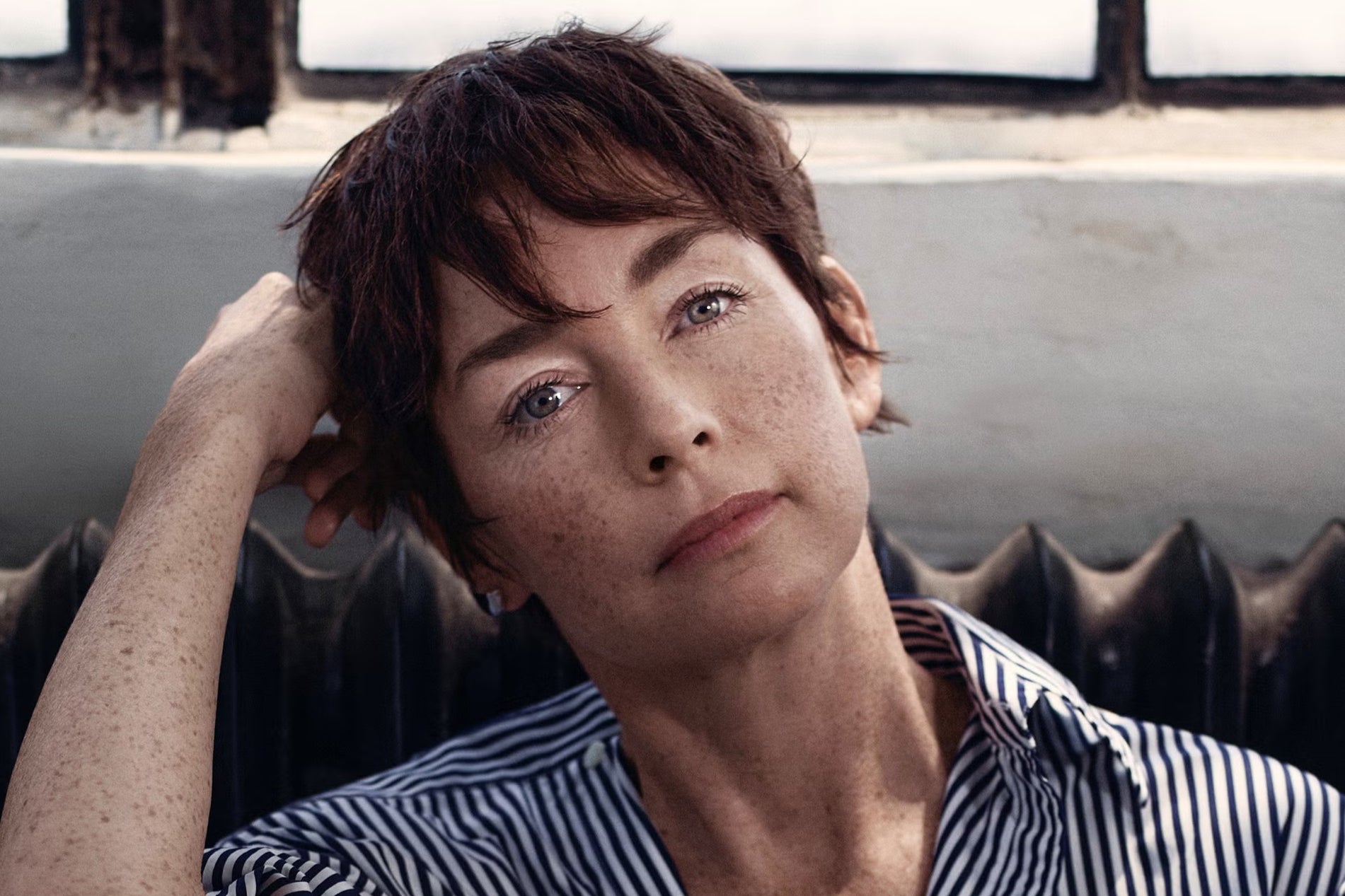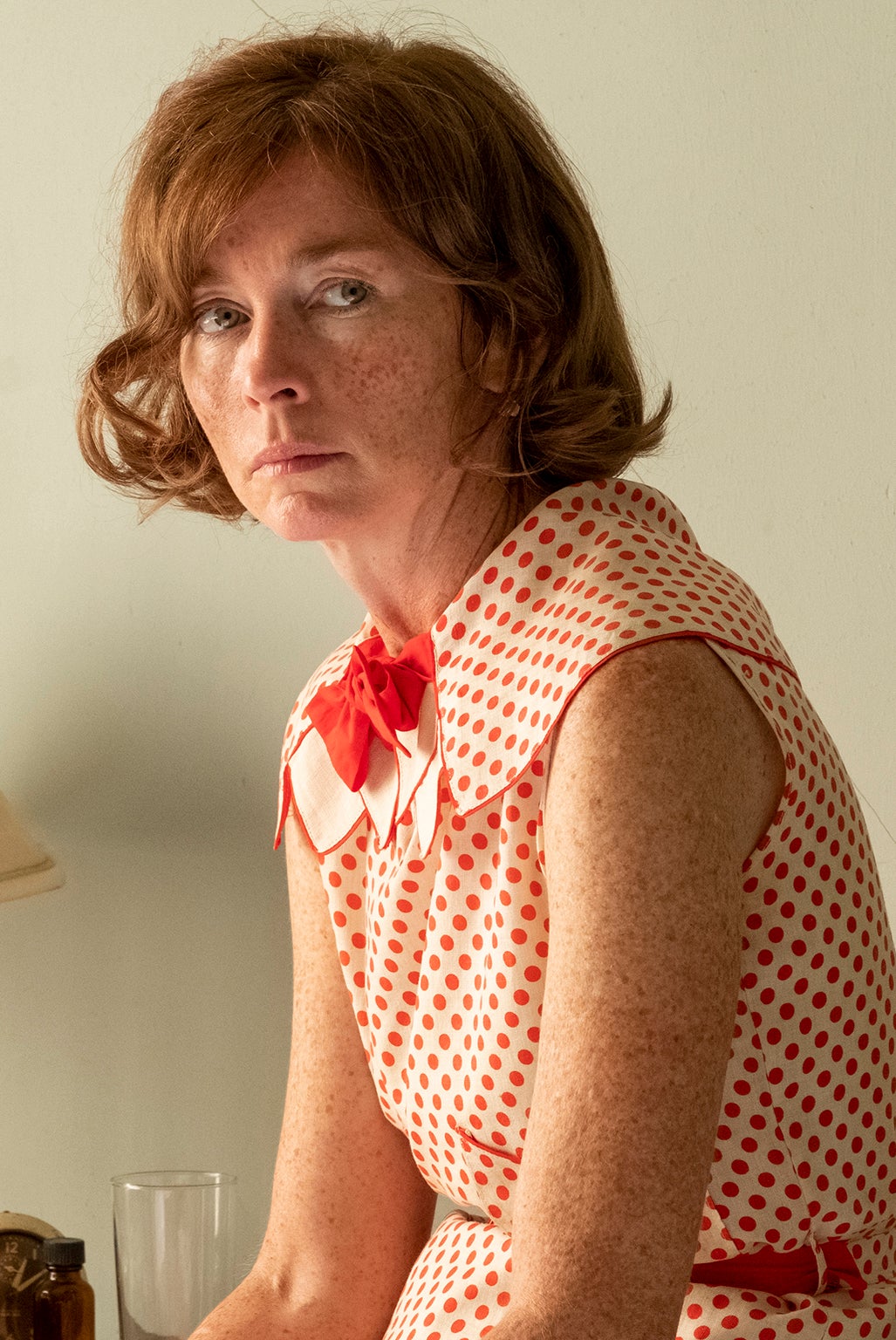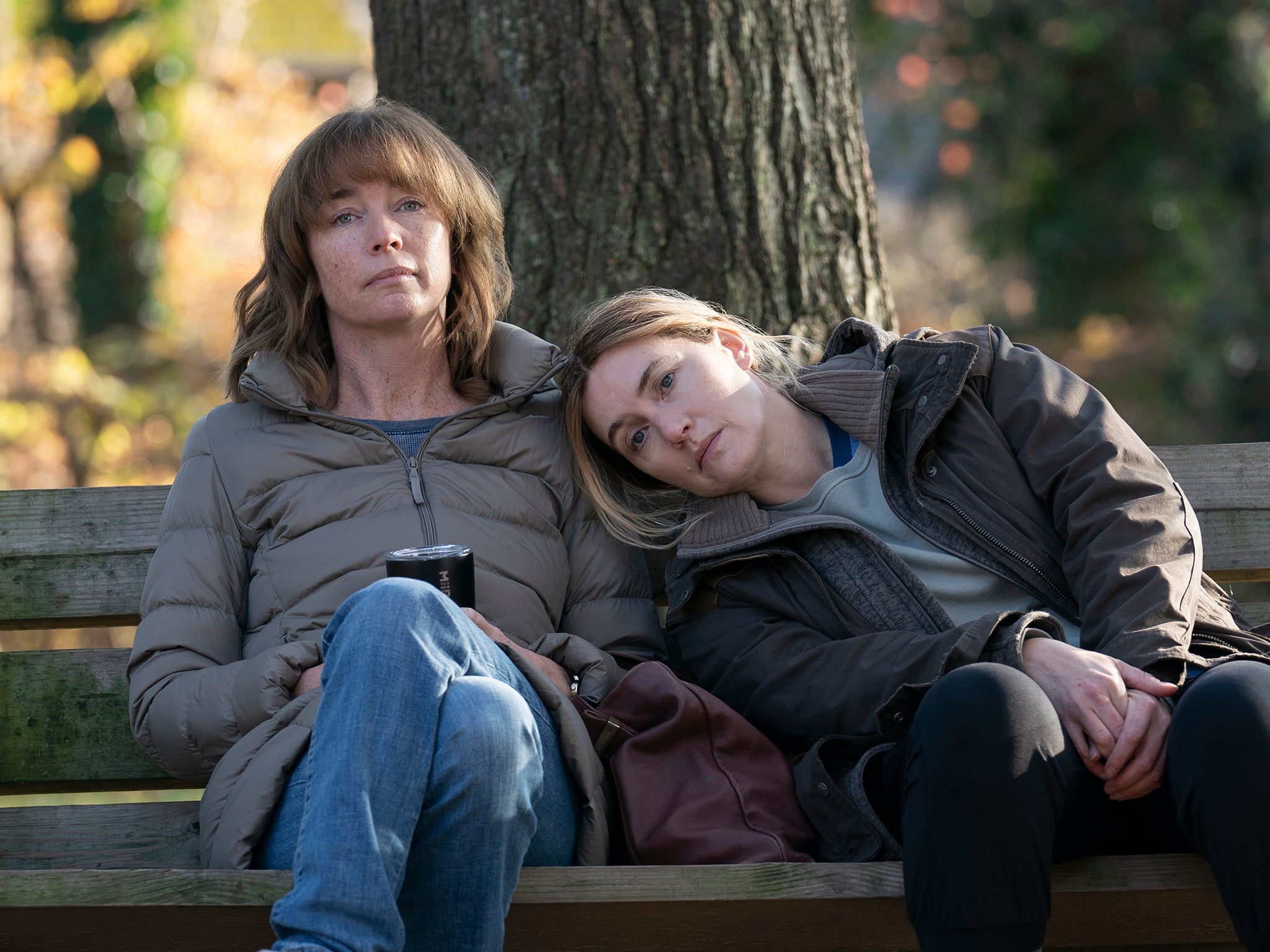Julianne Nicholson: ‘I feel like I need to discourage people in my family from watching Blonde’
The ‘Mare of Easttown’ Emmy-winner is fierce and terrifying as Marilyn Monroe’s mother in the incendiary Netflix film ‘Blonde’. She talks to Adam White about sex on film, feeling protective over Marilyn, and what it’s like being perpetually underrated


As a teenager, Julianne Nicholson was a Marilyn Monroe “fangirl”. The Emmy-winning star of Mare of Easttown and the jungle thriller Monos devoured every book she could find on her. She watched her films, listened to compilation albums of her songs, had photographs of her taped up in her locker. “I was obsessed,” she recalls. “I thought she was so beautiful and tragic and kind of unknowable.” Now, a few decades later, she’s playing her mother in a movie so incendiary that everyone involved – including star Ana de Armas – has been forced to rush to its defence. Nicholson, to her credit, admits that it won’t be for everyone. Particularly those who don’t want to see her as a child abuser in the grips of schizophrenia.
If Blonde is a Marilyn Monroe biopic that’s been doused in petrol and set on fire, Nicholson plays the match that ignites it. In just 15 minutes of screentime as Marilyn’s mother Gladys, Nicholson has a nervous breakdown, speeds through the streets of Hollywood as it goes up in flames and tries to drown her daughter in the bath. “I feel like I need to prep certain people in my family,” she says, grimacing. “Or, dare I say, actually discourage them from watching it. I’m often cast in darker dramas, so when they go through my work now, they’re like” – she lets out a tired sigh – “‘Here we go again!’ This time, I’m just gonna say, ‘Listen, you don’t have to watch it.’”
Nicholson, all ocean-green eyes and freckles, is calling from her daughter’s bedroom in Hampshire, sunlight beaming through the window behind her. She’s just moved to the UK from New York with her actor husband Jonathan Cake – a native Brit – and their children, after a pitstop at the Venice Film Festival to watch Blonde for the first time. She was nervous – her teenage adoration of Marilyn made her feel “protective” of the star’s memory, right down to the women who’ve got to play her on screen – “but Ana blew me away”.
Did that sense of protectiveness of Marilyn’s memory extend to Blonde itself? “Yes,” Nicholson says softly. She repeats it, more decisively this time. “I think the book was written with such love, as is the script. Meeting Andrew and talking to him about the process and the years he’s put into the project and the story he wanted to tell… it felt totally worthwhile and special.”
Blonde distils Marilyn Monroe’s short life into a parade of ghoulish encounters and existential hits to the soul. She’s transformed into a pound of flesh for America to feast upon. That premise – from writer and director Andrew Dominik, who adapted Joyce Carol Oates’s doorstopper of a bestseller – has understandably got Blonde into trouble already. An impressionistic art film punctuated by scenes of abuse, orgies and flashes of joy curdling into misery – plus a talking foetus! – it’s been called “ridiculously vulgar” by The New Yorker and “a slow-motion death march” by NPR. The Independent’s Amanda Whiting dubbed it “a new low” in Hollywood’s treatment of the star. Others have been more kind, with Mark Kermode writing in The Observer that it’s a “gothic melodrama [and] fever dream”. On the review aggregator site Rotten Tomatoes, Blonde currently sits at a delicious 52 per cent “fresh” – so close to “rotten” that you can practically smell it about to turn. “I think it’s a remarkable film,” Nicholson says. “But it’s already been revered and brutalised, and I get both sides. I imagine it’s just going to get more of that as it goes.”
There seems to be a bit of a disconnect between some of the reactions to the film and the spirit in which it was made – both Dominik and De Armas, for instance, have condemned the adults-only NC-17 certificate it’s received in the US. It means Blonde joins a murky lineage that includes Showgirls, Emmanuelle 2 and, um, Flesh Gordon Meets the Cosmic Cheerleaders. I admit I found Blonde a lot less objectionable than I expected. “I too thought it would be more explicit,” Nicholson says. “I feel like I see much more sexually explicit or violent films regularly that are for seven/eight/nine-year-old kids to be watching, which is terrible. So much of what we see [in Blonde] is artistic and beautiful, but I wonder if it’s because the sex and violence here provoke feelings in us that are not normally what happens when we’re watching a more straightforward, R-rated movie. I don’t know if it makes people uncomfortable.”

One of her big hopes for the film is that it might introduce her to people. “Which might make them want to look a little deeper into work I’ve done, or maybe it’ll remind someone of me,” she says. “I expect a lot of directors I admire will be curious about it.” But she’s also pragmatic when it comes to potential outcomes – Nicholson’s career has never been linear, always a zigzag. Even the Emmy didn’t feel like a big shift. “It’s the rare actor who gets the part that then changes everything,” she says. “We think that all the time. That’s the perception. But it’s still a f***ing slog. Like, ‘Oh my god, am I still not getting that offer?’”
There have been more than a couple of false starts. In 2000, she was a few years out of drama school when she was handpicked by Steven Spielberg to lead a supernatural drama series he was producing called The Others – Nicholson had worked with Spielberg’s wife Kate Capshaw on a romcom called The Love Letter a year before. The Others was spooky and ambitious (and all on YouTube, if you care to look) but was cancelled after 12 episodes. She had a brief run on Ally McBeal soon after, starred in a few more short-lived TV shows, and played supporting parts in films such as Kinsey, Black Mass and I, Tonya. Seeing her steal scenes is almost like being invited into a secret club. Call it The Cult of Julianne Nicholson.
Whenever she gets a rare showcase, like the punch-to-the-gut 2017 indie Who We Are Now – in which she plays a destructive, desperate mother fighting for custody of her young son – critics howl about the “terrific, unsung Julianne Nicholson”, or that she’d win an Oscar “if there’s any justice in this sick, sad world”. Does she ever notice the words that tend to crop up around her? “Like underrated?” she laughs. “That’s honestly been the story of the last 10 years or so. I feel like my name isn’t mentioned without ‘underrated’ before it. And that’s fine! But it’s a strange feeling.”

Watch Apple TV+ free for 7 day
New subscribers only. £9.99/mo. after free trial. Plan auto-renews until cancelled.
ADVERTISEMENT. If you sign up to this service we will earn commission. This revenue helps to fund journalism across The Independent.

Watch Apple TV+ free for 7 day
New subscribers only. £9.99/mo. after free trial. Plan auto-renews until cancelled.
ADVERTISEMENT. If you sign up to this service we will earn commission. This revenue helps to fund journalism across The Independent.

She remembers how surreal it was to win the Emmy and go to awards dos for Mare of Easttown, the HBO murder mystery starring Kate Winslet. People would approach her to say how much they loved her work. “When I’m not on a set, I don’t really go out a lot,” she says. “I’m not very ambitious, so it sometimes feels like I’m just acting in a void. Like I do the work and then I just go back to my life. So it’s really moving to then meet people in the business and hear them say nice things, or receive a lot of kindness from them.”
Which is a roundabout way of saying that she’d like to become less surprised that people have noticed her. What might help is getting bigger parts. “This sounds funny,” she admits, “but I’d like my characters to be more front and centre in the story moving forward. I love being a part of ensembles, but I’m at a place now where I’d like to become more involved.” When she’s working on something, she finds that she learns more and more about her characters as she plays them. “But when you only have four of five scenes, then it means the character gets closed [early]. I want to go deeper.”
That’s Nicholson’s dream. Plus, she adds, no more child trauma. If anything other than Nicholson links Blonde, Monos, Mare of Easttown and her 2020 HBO limited series The Outsider, it is violence inflicted on or by children. Hardly the nicest of coincidences. She recalls something she told her agent at the start of this year – halfway between a joke and an order.
“If you send me one more dead kid, I swear I’m leaving.”
‘Blonde’ is streaming on Netflix now
Join our commenting forum
Join thought-provoking conversations, follow other Independent readers and see their replies
Comments


Bookmark popover
Removed from bookmarks